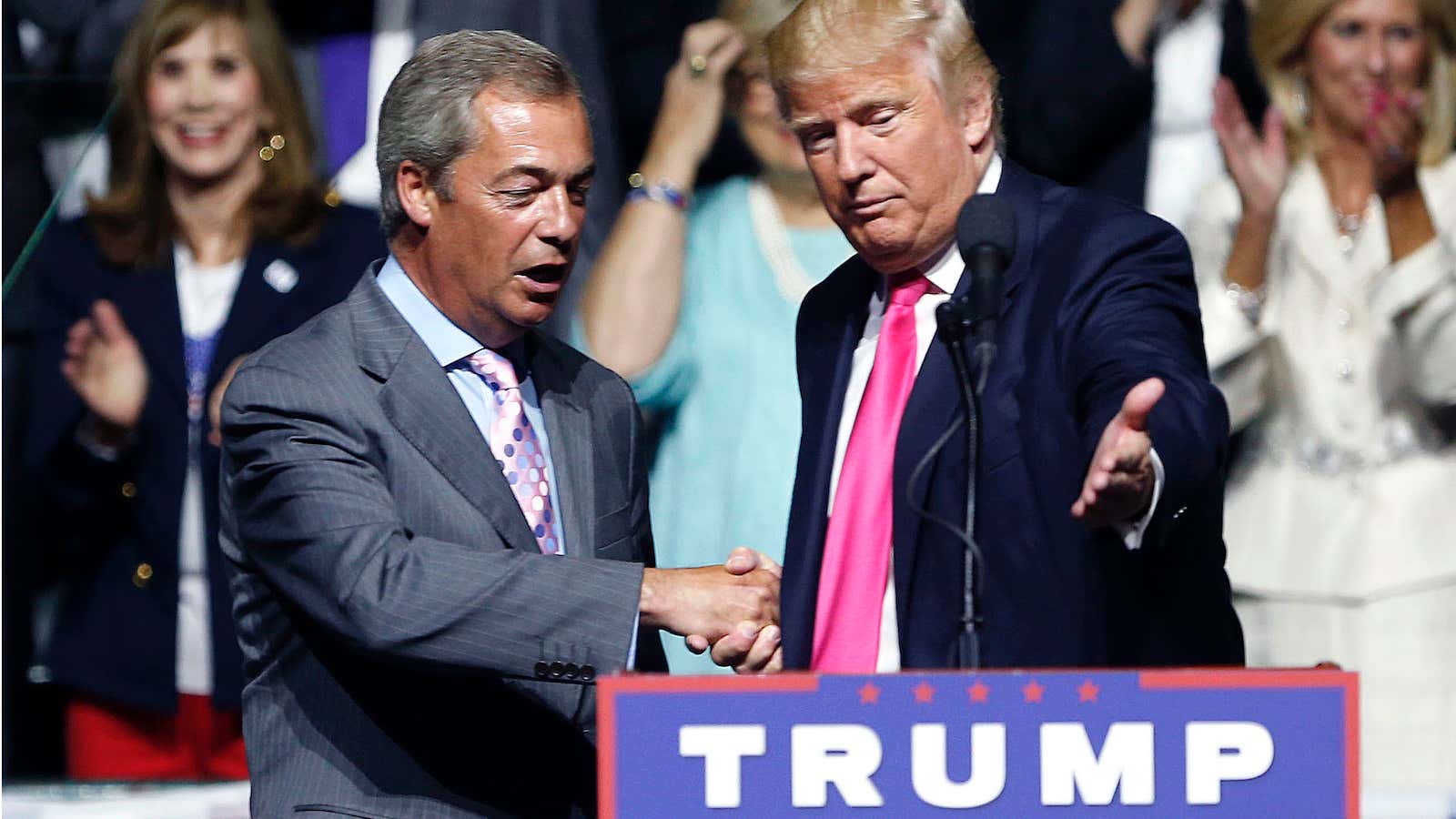Donald Trump has been in office less than a week, and the UK’s departure from the European Union has yet to happen. But it’s a measure of how rattling both news events have been that these countries’ world-famous universities—institutions usually slow to react to any sort of social or political change—are already feeling strain.
Applications from the EU to UK universities are down 7%, and applications to those schools from within the UK are also down 5%, according to mid-January data from the British organization that manages student applications.
It’s exactly what universities feared: that Britain’s decision to leave the EU would cause so much uncertainty amongst students—regarding visas, funding, research opportunities, and job prospects after school, among other concerns—that they’d turn away from the UK as a good option for higher education. (International students generally pay much more than their local counterparts; EU students currently pay the same fees as British students.)
A similar disruption is taking place at schools in North America. Colleges across Canada have gotten an unusual amount of applications and web traffic from the US during a tumultuous election year in which Trump triumphed in November.
The University of Toronto saw the most dramatic jump, receiving 70% more applications from American students in 2016 than it did for the previous application cycle; several other schools have seen spikes of 20% or more, according to the Associated Press. As Americans look to Canada to avoid going to school under the Trump administration, foreign teenagers are also growing wary of applying to US universities—so much so that analysts are predicting American colleges to take a significant financial hit from the loss of international students’ tuition.
Next to be seen: how the scattering of applications around the world will shake up schools themselves—and their budgets.
